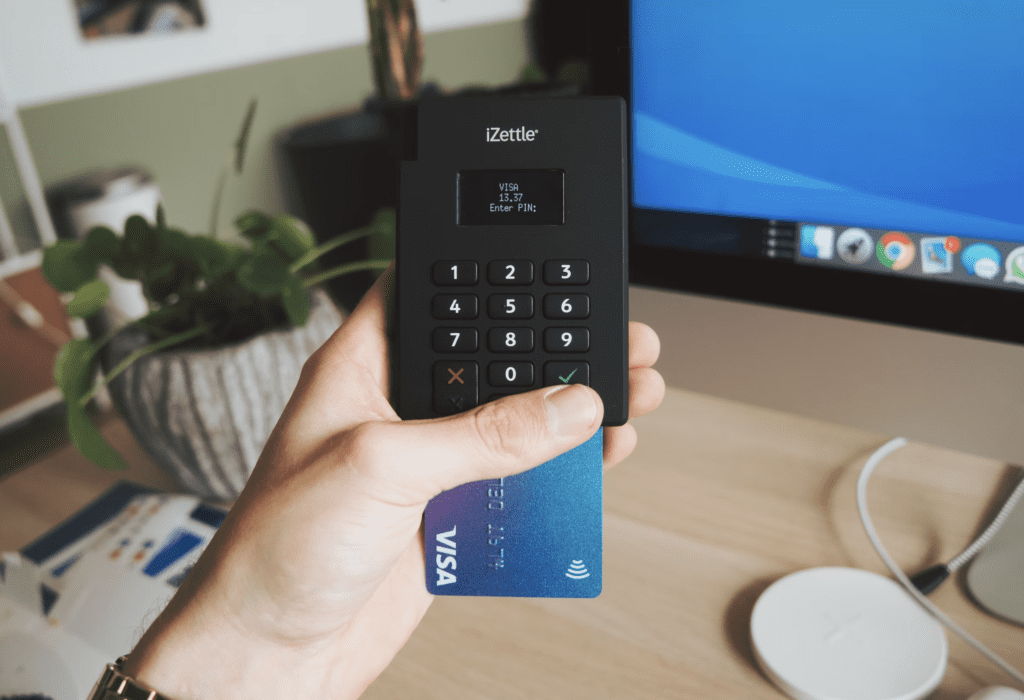Visa Chargeback Reason Codes Explained
Visa chargebacks can be a major inconvenience for merchants. It’s even more frustrating if you don’t understand what the chargeback code means.
Visa groups its chargeback codes into four main categories—fraud, authorization, processing errors, and customer disputes.
Use this guide as a quick resource for Visa chargeback reasons at a glance. Simply search for your Visa chargeback reason codes, and learn why the chargeback was issued.
Visa Fraud Chargeback Reason Codes
10.1 — EMV Liability Shift Counterfeit Fraud
The cardholder is claiming a counterfeit chip card was used at a POS system. The charge was not processed as a chip transaction.
10. 2 — EMV Liability Shift Non-Counterfeit Fraud
The cardholder claims fraudulent activity. They assign blame to the merchant’s EMV terminal for a card-present transaction. This is a common Visa chargeback reason for merchants who do not have a terminal that is EMV PIN-compliant.
10.3 — Other Fraud: Card-Present Environment
The cardholder’s actual card was used to make a fraudulent transaction. This happens if the merchant failed to validate the cardholder’s identity in a card present environment among other reasons.
10.4 — Other Fraud: Card-Absent Environment
A fraudulent transaction occurred without the physical presence of the card (known as CNP or card absent environment), according to the cardholder. This happens if the credit card number was stolen and used to make a purchase online, over the phone, or via direct mail.
10.5 — Visa Fraud Monitoring Program
Visa flagged the transaction without prior notification from the cardholder. This happens if the Visa’s fraud monitoring system detects a fraudulent sale, and the cardholder does not file a specific reason code.

Visa Authorization Chargeback Reason Codes
11.1 — Card Recovery Bulletin
The merchant failed to authorize the transaction through the account number in the Card Recovery Bulletin. To avoid this, you should check the CRB when it’s required.
11.2 — Declined Authorization
The authorization for the transaction was declined. However, the merchant continued to process the transaction. This typically occurs when a merchant does not request authorization or makes several attempts to force the sale on a declined card.
11.3 — No Authorization
A transaction was processed with no attempt to obtain authorization. Alternatively, the authorization might have been requested at a later time or for an unmatched amount.
Visa Processing Errors Chargeback Reason Codes
12.1 — Late Presentment
Visa did not receive the transaction from the merchant within the specified time limits. This happens if the merchant does not process the transaction in a timely fashion.
12.2 — Incorrect Transaction Code
The wrong transaction code was used to complete the sale.
This can happen if the merchant processed a credit card as a debit card, or processed a similar mix up. To avoid this, staff should be trained on how to properly process credits, debits, and reversals.
12.3 — Incorrect Currency
The merchant incorrectly processed the currency of the transaction. The transaction currency is different from the currency transmitted through Visa, or the cardholder did not agree to currency conversion.
12.4 — Incorrect Account Number
The account number for the transaction does not match the account number in the authorization.
12.5 — Incorrect Amount
The amount of the transaction does not match the authorization amount. It’s common for this to happen when numbers were entered manually or if the merchant changes the amount prior to getting the customer’s consent.
12.6 — Duplicate Processing/Paid by Other Means
This occurs if a single transaction was processed multiple times. It usually happens if a merchant tries submitting multiple batches simultaneously, or the same transaction duplicate was in the merchant’s system.
12.7 — Invalid Data
Authorization was obtained using data deemed to be incorrect or invalid. Examples of inaccurate data include the transaction data, country code, state code, merchant category codes (MCC), or any other required data field.

Visa Customer Disputes Chargeback Reason Codes
13.1 — Merchandise/Services Not Received
The cardholder disputes the charge because the goods or services were not received by the specified date. This typically occurs if the cardholder is charged before shipping or delivery.
13.2 — Canceled Recurring Transaction
The cardholder continues getting charged for a recurring transaction that they claimed to have canceled. This commonly happens for subscription services. The transaction receipts should indicate recurring charges.
13.3 — Not as Described or Defective Merchandise/Services
The cardholder claims that the goods or services were not delivered as described. This can also happen if the goods or services were defective.
13.4 — Counterfeit Merchandise
The merchandise sold the cardholder was deemed as counterfeit by a third-party, government agency, or the owner of the intellectual property. This happens to merchants who are unknowingly (hopefully) selling counterfeit goods.
13.5 — Misrepresentation
The cardholder feels that they are victims of false advertising. They feel as though the products or services were misrepresented prior to the purchase due to inaccurate, insufficient, or vague product descriptions. This could also happen for a recurring transaction.
13.6 — Credit Not Processed
The cardholder claims that the merchant owed them a credit on the account. But the credit was never processed or received. This can happen if the issuing bank gets a notice from the customer for a voided transaction receipt that hasn’t been processed.
13.7 — Canceled Merchandise/Services
The cardholder claims to have canceled a service or returned goods, but a credit or refund has not been issued. This typically happens if the merchant delays processing the credit.
13.8 — Original Credit Transaction Not Accepted
The cardholder does not accept credit. In other instances, local laws could prohibit the card issuer from allowing OCTs (original credit transactions).
13.9 — Non-Receipt of Cash or Load Transaction Value
This occurs if the cardholder claims they did not receive the full amount of cash withdrawn at an ATM. A malfunctioning or broken machine is usually the culprit. Customers will likely need to provide an ATM cash disbursement transaction receipt for the chargeback.
Additional Reading: Visa Interchange Rates
Visa Chargeback Codes FAQ: Your Top Questions Answered
These are the most common questions we hear from merchants about Visa chargebacks:
What is a Visa Chargeback Reason Code?
A Visa chargeback reason code is a number that identifies the reason why a cardholder disputed a transaction that led to a chargeback. The reason code helps categorize the chargeback for the card network and issuing bank, and it also tells the merchant how they can fight the chargeback based on the corresponding reason for the transaction.
What is the Visa Chargeback Process?
The Visa chargeback process starts when the cardholder contacts the bank to dispute a transaction. Next, the bank reviews the information associated with the transaction to see if it’s eligible for a chargeback before sending the chargeback notification and reason code to the merchant.
Merchants can either accept the chargeback or fight it. If a merchant fights the chargeback, they’ll need to submit a letter with evidence to prove the transaction was legitimate. Based on the response and evidence provided, the chargeback is either upheld or reversed.
How Long Do Visa Chargebacks Take?
Visa cardholders typically have 120 days to dispute a transaction. Once a Visa chargeback is issued, merchants have 20 days to respond, and the average dispute takes 46 days to resolve. But the entire process can take anywhere from 30 to 90 days or more, depending on the complexity of the claim.
Final Thoughts on Visa Dispute Reason Codes
The first thing to do when you get a chargeback from Visa is to identify what caused it. You can use this guide to quickly search for your reason code before you try to rectify the situation, dispute the chargeback, or respond.
For more information on how to prevent chargebacks from occurring in the first place, review our complete guide to credit card chargebacks.


0 Comments